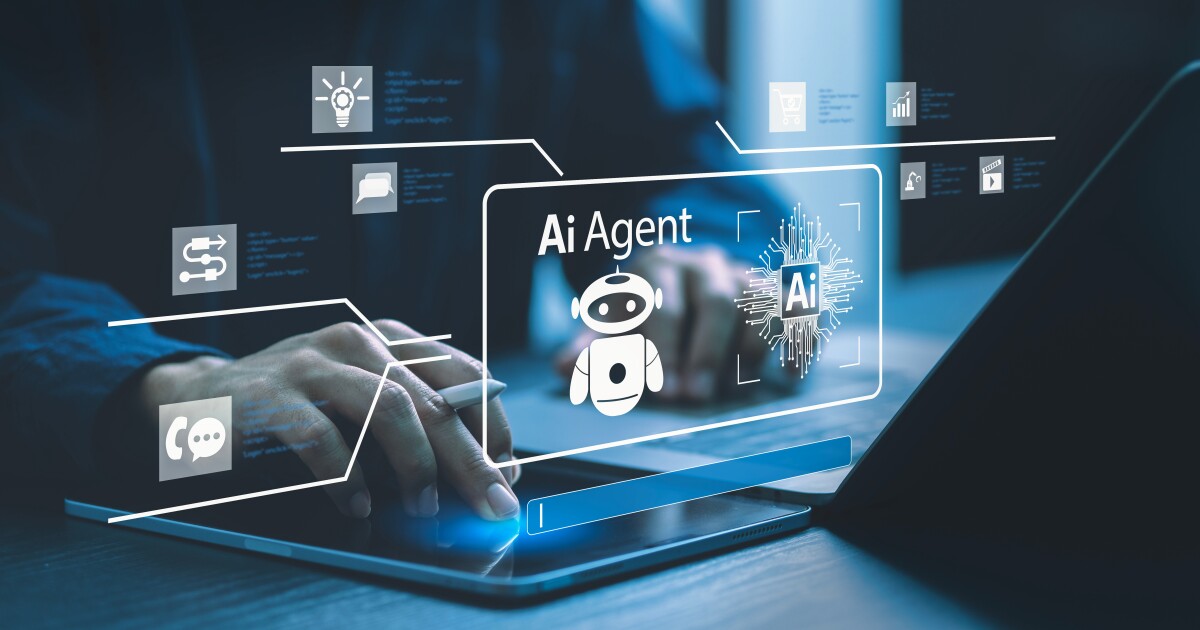Agentic AI continues its advance this year with simultaneous announcements by FloQast and Fieldguide of new solutions resting on this technology.
While the precise definition can vary depending on who is asked, very broadly agentic AI could be described as software that is capable of at least some degree of autonomy to make decisions and interact with tools outside itself in order to achieve some sort of goal—whether booking a flight, sending a bill or buying a gift—without constant human guidance. Agents are not necessarily new, but the rise of generative AI has made them much easier to make and use, as doing so no longer requires specialized coding skills. However, while they may use generative AI, they should generally not be confused with generative AI bots unto themselves.
FloQast’s new AI Agents solution as well as Fieldguide’s Field Agents solution both tout the potential for these new bots to improve efficiency and productivity at accounting firms that are facing increasing staffing pressure amid a major talent shortage.
FloQuast AI Agents
Accounting solutions provider FloQast announced the launch of a new agentic AI solution compliant with the new ISO standards pertaining to the technology. FloQast AI Agents enables the automation of complex recurring workflows across close management, compliance, and reporting functions using natural language versus extensive code.
The solution so far includes three AI agents:
- A Journal Entry Agent which automates the creation of journal entries, such as Coupa Accruals, which automates the complex process of creating and posting accrual entries from Coupa data;
- A Data Transformation Agent which standardizes unstructured data using natural language, not extensive code, allowing accounting teams to automate the preparation of work related to key tasks, reconciliations, compliance, or reporting activities; and a
- Custom Agent, which enables customers to create their own Agents to automate workflows of their choice.
“The accounting profession is under more pressure than ever, with shrinking talent pools, heavier workloads, and growing demands for strategic insights,” said Mike Whitmire, CEO of FloQast. “FloQast AI Agents put accountants in the driver’s seat, shifting them from preparers to reviewers with AI automation built for their processes—fully auditable and designed for trust. And, as CFOs struggle to fill open roles on their teams, FloQast AI agents are poised to be an invaluable resource to help plug that gap and help teams work smarter, stay in control, and deliver the insights that move businesses forward.”
FloQast said its custom AI agent capabilities will soon expand, allowing users to create their own agents for key categories such as Journal Entry, Tasks, Reconciliations, Financial Insights, and Compliance. These agents are joined by the FloQast Transform platform, a product within the company’s larger Accounting Transformation Platform; the FloQast Transform platform serves as a centralized hub where customers can easily create, test, deploy, and manage FloQast AI Agents. With FloQast Transform, accounting teams can create bespoke automation for their specific needs without waiting for vendor-built solutions or an extensive demand from IT.
FloQast noted that it has obtained ISO 42001 certification, released towards the end of last year, which specifies requirements for establishing, implementing, maintaining, and continually improving AI management systems within an organization.
Fieldguide releases agents
Advisory and audit solutions provider Fieldguide announced the release of its agentic AI solution, FieldAgents, which is touted as being able to autonomously execute entire engagement workflows.
The product is conceived of as an evolution of this Field Assist solution, which leverages generative AI and LLMs to automating individual tasks, such as writing test procedures, quickly finding insights from complex documents, and documenting test results.
Field Agents link individual automated tasks into complete, end-to-end workflows that an agent executes with professional input and oversight. For example, an agent can leverage a firm’s methodology and procedures to request the right documents, run the appropriate test procedures, document evidence, and flag important issues for review.
These semi-autonomous bots are intended to function as an extension of the engagement team, automating time-intensive, multi-step processes and empowering professionals to refocus on higher-impact work while unlocking new capacity. Fieldguide says that it is meant to be seamlessly integrated into a firm’s methodology, allowing for process automations particular to the user’s needs.
“The future of audit and advisory is promising with the benefits that AI already brings today. We envision the winning firms of tomorrow being those who integrate AI to elevate their practitioners,” said Jin Chang, CEO and co-founder of Fieldguide. “Field Agents brings professional-grade AI agents to the industry, fundamentally transforming how audit and advisory firms grow and operate through the next decade. By orchestrating complex, multi-step processes, Field Agents free professionals to focus on what matters: Applying their expertise and strengthening client relationships.”
The solution, which had been named one of Accounting Today’s Top New Products of 2025, had previously been in limited release. Today’s announcement marks the solution’s general availability.


 Blog Post6 days ago
Blog Post6 days ago
 Accounting1 week ago
Accounting1 week ago
 Economics1 week ago
Economics1 week ago
 Personal Finance1 week ago
Personal Finance1 week ago
 Economics1 week ago
Economics1 week ago
 Personal Finance1 week ago
Personal Finance1 week ago
 Accounting1 week ago
Accounting1 week ago
 Finance1 week ago
Finance1 week ago













